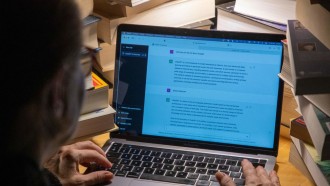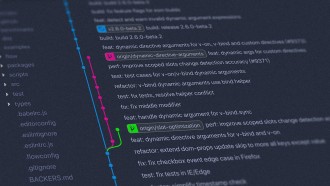British engineering firm Arup recently confirmed falling victim to a sophisticated deepfake fraud, resulting in an employee transferring HK$200 million (£20 million or $25 million) to criminals. This scam involved an artificial intelligence-generated video call that convincingly mimicked senior company officers.
Deepfake Fraud Attacks Arup

(Photo : John Schnobrich from Unsplash)
UK-based engineering firm Arup said one of its employees sent £20 million to hackers. It only took at least an AI video call to pull off this deepfake scam.
In February, Hong Kong police disclosed that an unnamed company had been deceived by fraudsters posing as high-ranking executives via a hoax call. Arup later identified itself as the affected company, acknowledging the incident that occurred at the beginning of the year. The fraudulent scheme employed both fake voices and images to execute the scam.
Related Article: Experts Weigh in on AI Deepfake Detection Software
Impact and Response
The Guardian reports that Arup assured that their financial stability and business operations remained unaffected by the fraud, with no internal systems compromised.
Rob Greig, Arup's Global Chief Information Officer, highlighted the frequent attacks the company faces, including deepfakes. He expressed hope that their experience would increase awareness of the growing sophistication of cyberattacks. The Financial Times initially reported Arup as the targeted company.
"Like many other businesses around the globe, our operations are subject to regular attacks, including invoice fraud, phishing scams, WhatsApp voice spoofing and deepfakes. What we have seen is that the number and sophistication of these attacks has been rising sharply in recent months," he said.
Arup's Background and Recent Projects
Arup, a leading consulting engineering firm, employs over 18,000 people worldwide. The company is renowned for its structural engineering contributions, such as the Sydney Opera House's distinctive concrete shells. Arup has also been involved in notable projects like London's Crossrail transport scheme and Barcelona's Sagrada Família.
Rising Threat of Deepfake Scams
The incident with Arup is not isolated. The Guardian recently reported that Mark Read, CEO of the world's largest advertising group WPP, was targeted by a deepfake scam using an AI voice clone. Read warned his colleagues to be cautious of calls purportedly from top executives.
Details from the Investigation
Hong Kong media quoted Senior Police Superintendent Baron Chan, who explained that the Arup employee was invited to a video conference call with "many participants" that appeared genuine. This led to the employee transferring a total of HK$200 million across 15 transactions to five local bank accounts.
Ongoing Investigation
The Hong Kong police confirmed the deception, detailing that the employee had received video calls from individuals posing as senior officers, instructing them to transfer money to specific bank accounts. No arrests have been made yet, but the investigation continues, and the case is classified as "obtaining property by deception."
Other Recent Deepfake Scams
Last month, a South Korean woman was scammed by a deepfake impersonator of Elon Musk, who managed to drain $50,000 from her.
Read Also: North Korea-Linked Kimsuky Hackers Use Gomir Backdoor on Linux






